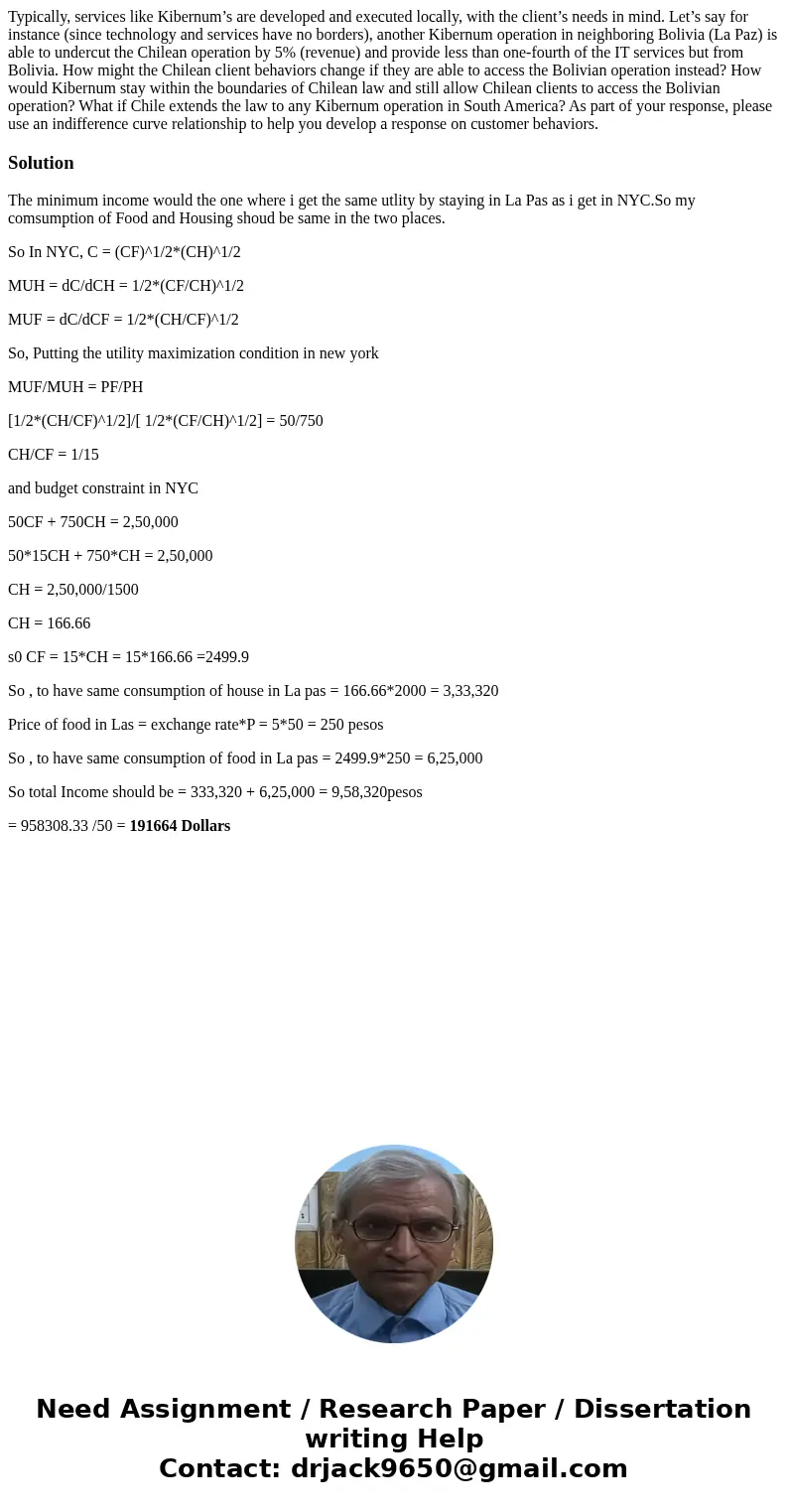Typically services like Kibernums are developed and executed
Typically, services like Kibernum’s are developed and executed locally, with the client’s needs in mind. Let’s say for instance (since technology and services have no borders), another Kibernum operation in neighboring Bolivia (La Paz) is able to undercut the Chilean operation by 5% (revenue) and provide less than one-fourth of the IT services but from Bolivia. How might the Chilean client behaviors change if they are able to access the Bolivian operation instead? How would Kibernum stay within the boundaries of Chilean law and still allow Chilean clients to access the Bolivian operation? What if Chile extends the law to any Kibernum operation in South America? As part of your response, please use an indifference curve relationship to help you develop a response on customer behaviors.
Solution
The minimum income would the one where i get the same utlity by staying in La Pas as i get in NYC.So my comsumption of Food and Housing shoud be same in the two places.
So In NYC, C = (CF)^1/2*(CH)^1/2
MUH = dC/dCH = 1/2*(CF/CH)^1/2
MUF = dC/dCF = 1/2*(CH/CF)^1/2
So, Putting the utility maximization condition in new york
MUF/MUH = PF/PH
[1/2*(CH/CF)^1/2]/[ 1/2*(CF/CH)^1/2] = 50/750
CH/CF = 1/15
and budget constraint in NYC
50CF + 750CH = 2,50,000
50*15CH + 750*CH = 2,50,000
CH = 2,50,000/1500
CH = 166.66
s0 CF = 15*CH = 15*166.66 =2499.9
So , to have same consumption of house in La pas = 166.66*2000 = 3,33,320
Price of food in Las = exchange rate*P = 5*50 = 250 pesos
So , to have same consumption of food in La pas = 2499.9*250 = 6,25,000
So total Income should be = 333,320 + 6,25,000 = 9,58,320pesos
= 958308.33 /50 = 191664 Dollars

 Homework Sourse
Homework Sourse